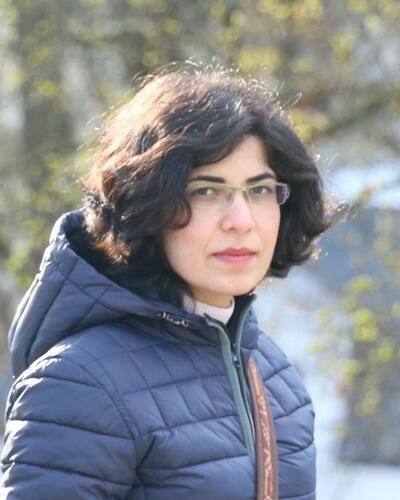- E-mailasieh.mofrad@uib.no
- Visitor AddressHIB - Thormøhlens gate 555006 Bergen
- Postal AddressPostboks 78035020 Bergen
Asieh Abolpour Mofrad is a researcher in machine learning at the Informatics Department, UiB.
Currently, she is engaged in the Retail Fresh project, which addresses the issue of food waste, particularly in the retail sector. The project, in collaboration with Link Retail, aims to develop a scalable system based on machine learning to minimize the wastage of fresh goods while sustaining sales.
Previously, she served as a postdoctoral fellow at the Department of Global Public Health and Primary Care, UiB. As a member of the DRONE project (Drug Repurposing for NEurological diseases) at IGS, she applies cutting-edge machine learning techniques for in-depth analysis of Norwegian health registry data to develop innovative treatments for Parkinson's disease (PD).
Her educational journey has been dynamic, encompassing two distinctive Ph.D. pursuits. During her OsloMet Ph.D. program in Informatics Psychology (Jan. 2021), she engaged in a multidisciplinary exploration at the intersection of AI and psychology, which included the development of reinforcement learning agents for replicating brain function in a memory learning psychology experiment. Her UiB Ph.D. in informatics (Nov. 2021) focused on the design and development of auto-associative memories inspired by neural networks.
- (2023). Association between Use of Any of the Drugs Prescribed in Norway and the Subsequent Risk of Parkinson Disease: A Drug-wide Association Study. Neurology. E2068-E2077.
- (2021). On Neural Associative Memory Structures: Storage and Retrieval of Sequences in a Chain of Tournaments. Neural Computation. 2550-2577.
- (2021). Enhanced Equivalence Projective Simulation: A Framework for Modeling Formation of Stimulus Equivalence Classes. Neural Computation. 483-527.
- (2020). Equivalence Projective Simulation as a Framework for Modeling Formation of Stimulus Equivalence Classes. Neural Computation. 912-968.
- (2020). Balanced difficulty task finder: an adaptive recommendation method for learning tasks based on the concept of state of flow. Cognitive Neurodynamics. 675-687.
- (2019). On solving the SPL problem using the concept of probability flux. Applied intelligence (Boston). 2699-2722.
- (2016). Clique-based neural associative memories with local coding and precoding. Neural Computation. 1553-1573.
- (2015). On the Burst Erasure Efficiency of Array LDPC Codes. Wireless Personal Communications. 1313-1329.
- (2022). Kartlegging av omfanget av hatefulle og diskriminerende ytringer mot muslimer . .
- (2023). Drug-wide prospective study associates thirty-one drug classes with the risk of Parkinson’s disease.
- (2015). Neural network associative memories with local coding.
- (2017). Nested-clique networkmodel of neural associativememory. Neural Computation. 1681-1695.
- (2018). Achieving Connectivity between Wide Areas Through Self-Organising Robot Swarms using Embodied Evolution. 9 pages.
- (2017). Solving Stochastic Point Location Problem in a Dynamic Environment with Weak Estimation. 6 pages.
- (2023). Computational models of stimulus equivalence: An intersection for the study of symbolic behavior. Journal of The Experimental Analysis of Behavior. 407-425.
More information in national current research information system (CRIStin)
